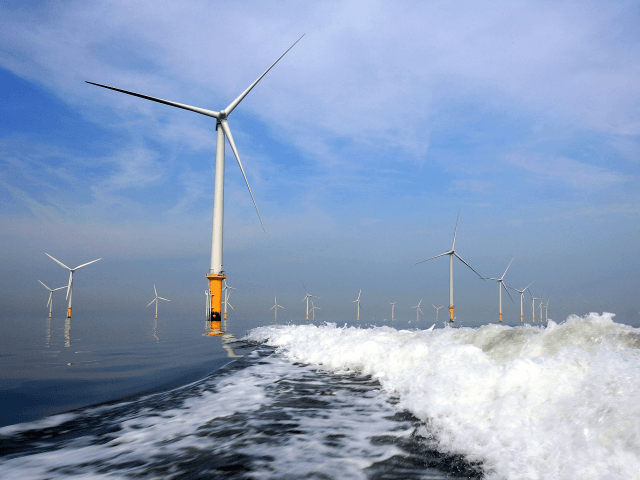Don’t laugh too hard but this has been a terrible week for the renewable energy dream.
Across the world solar energy share prices have crashed. This was caused by a sudden and unexpected decision by China, the world’s biggest solar manufacturer and user, to rein in subsidies.
According to Caixin Global:
China has abruptly put the brakes on solar power subsidies, seeking to stem overcapacity in a sector that has benefited for years from government incentives.
The move caught many in the industry off guard.
The government won’t grant subsidies to any new ordinary solar projects this year. For those that are being built, the incentives will be cut by 0.05 yuan (0.8 U.S. cents) per kilowatt-hour (kWh).
Solar stocks have fallen across the board by double digits. It’s uncertain when they will recover.
It hasn’t been a good week for wind energy either. In Britain, the industry has become a national joke because for seven days its wind turbines stood still and produced no electricity. Great news for all the birds and bats they would otherwise have sliced and diced; no problem for the renewables industry troughers who still get their rich subsidies whether the wind blows or not. But definitely unfortunate PR for an industry which would prefer everyone not to notice one of wind energy’s main problems: it’s intermittent – which means that a) it’s not always there when you need it and so b) it requires constant back up from more reliable fossil fuel on standby.
We shouldn’t laugh, except actually we must. Otherwise guys like this will win the day.
Liebreich – founder of Bloomberg New Energy Finance – has done extremely well out of the climate change scare industry. That’s why he can afford to jet freely around the world (not first class, he insists in a subsequent tweet: just economy to Dublin to catch Gorillaz on Skype – as you do…)
Here he is having his cake and eating it. That is, he is virtue-signalling his environmental purity by railing swearily against “plastic pollution” – the fashionable cause du jour. Simultaneously, he is racking up the air miles and extending his carbon footprint like an Al Gore-style boss.
The global warming industry – the Climate Industrial Complex – has been estimated as being worth an annual $1.5 trillion, but that was three years ago and no doubt it’s a lot more valuable now. Like a lot of renewables advocates, Liebreich has made of a heck of a lot more money than he would had he been, say, a skeptical journalist writing about what a huge con the global warming industry is. But at the price, of course, of his soul…
He gives the game away in this rather elegant piece he wrote recently about the future of global energy industry. It concerns the dilemma that he claims oil companies face: do they give up on fossil fuel and move rapidly into renewables; or do they ride out fossil fuels slowly into the sunset, knowing that they are doomed, but extracting the last remaining value they can?
This is, of course, the purest green propaganda masquerading as dispassionate business advice.
Yes, it’s perfectly true that most Big Oil companies have now been hijacked by squishy sell-out globalists who can’t apologize often enough for the terribleness of their sticky black produce and who would dearly love all their profits to come from wind alone.
But against that there’s the reality that renewables still provide a tiny percentage of global energy consumption and that even by 2040 – if you believe BP’s projections, which I don’t: I think they’re heroically optimistically pro-renewables – fossil fuels are still going to provide well over half global energy consumption.
Anyway, I said earlier that Liebreich gives the game away in his piece. Here is the key moment:
There is no inherent dishonor or immorality in pursuing a Sunset Ride. Even the most ardent climate activist is going to be a user of fossil fuels and petrochemical products for many more decades, and no one with integrity can demonize products whose demand they themselves drive. Dishonor and immorality lie only in attempts to obfuscate or delay the global transition to clean energy and transport, either through lobbying and misinformation or through a failure to strive for the highest standards within one’s own operations. Oil and gas companies need to lead on eliminating fugitive emissions and flaring, and to act with transparency and honor around the world.
My fellow skeptic Rupert Darwall recognizes in that “dishonour and immorality” bit the Mafia-like dirty secret of the renewables industry which must be protected at all costs by Omerta.
The entire renewables industry is an act of faith. The ONLY reason it can survive is through subsidies. And those subsidies can ONLY continue if renewables true believers can persuade enough gullible people to accept being fleeced by their gullible governments to pay over the odds for wind and solar in the name of the environment.
Once people start to lose that faith all bets are off.
That’s what’s so great about the collapse of the global solar markets and the ridicule heaped this week on the UK wind industry.
It really couldn’t happen to more deserving people.
James Delingpole is a writer, journalist, and columnist. He is a writer at Breitbart London. Follow him on Twitter: @JamesDelingpole.
